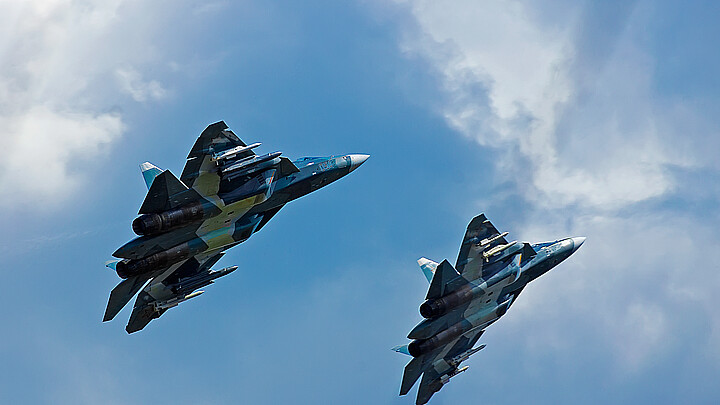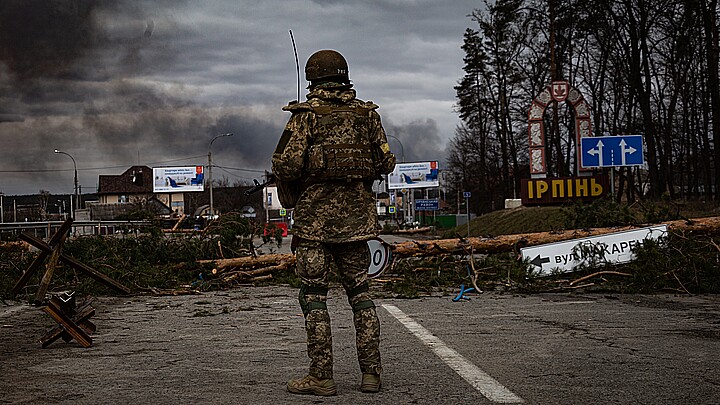Politics
Germany says displaying Russian 'Z' could be a crime
"The Russian war of aggression on the Ukraine is a criminal act, and whoever publicly approves of this war of aggression can also make himself liable to prosecution," German Interior Ministry spokesperson announced on Monday.
March 28, 2022 3:44pm
Updated: March 28, 2022 5:37pm
A German Interior Ministry spokesperson announced on Monday that individuals who display the letter “Z” in Germany in support for Russia’s illegal invasion of Ukraine could face criminal charges.
"The Russian war of aggression on the Ukraine is a criminal act, and whoever publicly approves of this war of aggression can also make himself liable to prosecution," the spokesperson told reporters.
The move comes days after several German states – including Berlin, Bavaria and Lower Saxony -- said they would prosecute cases of the Z symbol being used in support of Russian aggression, Reuters reported.
Since Russian tanks rolled across the Ukrainian border on Feb. 24, the world has wondered what the mysterious “Z” symbol painted across the side the invading Russian vehicles could possibly mean. Although the answer remains unclear, it has since been adopted by Russians who support the war and can often be seen flying at pro-Kremlin rallies. For countless other individuals around the world, however, the now infamous letter has come to represent the 21st century Swastika.
As Jeffrey Scott Shapiro writes in the Washington Times, “The Z has been used as a tool of intimidation against its victims.”
Germany has a long tradition of respecting freedom of speech and the Global State of Democracy Indices freedom of speech ranking places Germany solidly among the top ten freest countries in the world. Article 5 of its Grundgesetz (Constitution) says, “Every person shall have the right freely to express and disseminate his opinions in speech, writing and pictures, and to inform himself without hindrance from generally accessible sources.”
Certain symbols, however, are not protected by the constitution.
According to section 86a of the German Strafgesetzbuch (criminal code), the "use of symbols of unconstitutional organizations" outside the contexts of "art or science, research or teaching” is illegal. Although the law does not name the individual symbols that should be outlawed, it has been used to ban Nazi, Communist and Islamic extremist symbols.
Russia invaded Ukraine more than one month ago now, but Ukrainian armed forces have defied the odds by holding key areas and preventing Putin’s armies from capturing any major city, including the capital, Kyiv.
Ukrainian forces have recaptured towns on the outskirts of Kyiv and initiated counterattacks against Russian positions, forcing them to retreat on overextended supply lines in what Western officials believe may be a sign that momentum in the war in shifting.
According to one British intelligence report released last week, “Ukrainian counter-attacks, and Russian forces falling back on overextended supply lines, has allowed Ukraine to reoccupy towns and defensive positions up to 35 km east of Kyiv.”
The Kremlin, for its part, signaled that it was shifting its focus in Ukraine to instead focus on territories claimed by Russian-back separatists in the east.








